If you are like me, you grew up with the idea that sugar and bad genes cause tooth decay. Cavities and tooth decay meant a person needed to brush better and eat less sugar. And it certainly wasn’t possible to remineralize teeth.
I believed all that stuff too… but as it turns out, there is more to the story!
This post shares my personal account of my research into oral health and my own results. It is not medical or dental advice in any way. I’m not a dentist or doctor and don’t play one on the internet. I recommend finding a great biological dentist to work with on your own oral health.
What Really Causes Tooth Decay?
Turns out, a lot of historical evidence and recent research points to the idea that diet has a big impact on oral health. In fact, diet might matter as much or more than brushing! As I started researching oral health, I found examples of groups of people with no tooth decay. I also found examples of people claiming their teeth had remineralized.
As I thought about this, it made sense…
Why would bones and other tissue be able to heal and regenerate, but not teeth?
How did other populations throughout the world have great oral health, no cavities and no need for braces when they didn’t even have access to modern dentistry?
Research of Dr. Weston A. Price
As Dr. Weston A. Price (a dentist) found and detailed in Nutrition and Physical Degeneration, there were cultures throughout the world who had perfect teeth spacing and no evidence of cavities. This was despite no access to dentists or modern toothpaste, while similar cultures with different diets had very high rates of tooth decay.
Price showed examples of cultures with similar genetic backgrounds. Some living in primitive type societies and eating primitive type diets and others eating a more modernized diet. He concluded that many primitive cultures were able to completely avoid tooth decay and the many oral health problems we struggle with today. This was true even in cultures where they didn’t brush their teeth.
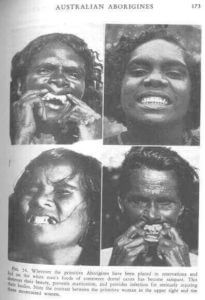 The image on the left shows a stark example of this: the woman in the top right ate a primitive, whole-food, high-fat diet while the other women ate a more modernized diet that contained grains and agricultural foods.
The image on the left shows a stark example of this: the woman in the top right ate a primitive, whole-food, high-fat diet while the other women ate a more modernized diet that contained grains and agricultural foods.
Price hypothesized that several dietary factors contributed to this difference in oral health.
Research of the Doctors Mellanby
Sir (Dr.) Edward Mellanby (he discovered Vitamin D) and his lovely wife Dr. May Mellanby were also influential in discovering the roles of nutrients in oral health. These two contributed much research in the areas of bone and tooth health and mineral absorption.
In fact, it was Edward who discovered that Vitamin D deficiency caused rickets. They also discovered that tooth structure is determined during a child’s growth, and that poorly formed teeth are more likely to decay (pretty logical).
The Doctors’ Conclusion: Diet Affects Oral Health
These doctors all reached the same conclusion after years of research. Specifically that tooth structure and decay is largely determined by diet, especially three main factors:
- The presence of enough minerals in the diet.
- The presence of enough fat soluble vitamins (A, D, E and K) in the diet.
- How bio-available these nutrients are and how well the body is absorbing them. They found that this is largely influenced by the presence of Phytic Acid in the diet and how much sugar is consumed.
Phytic Acid Effect on Oral Health
Phytic acid is a molecule of phosphorus tightly bound with other molecules to form a type of phosphorus that is not easily absorbed by humans.
More simply, it is a compound present in grains, nuts, seeds and legumes. It is also present in much smaller amounts in some fruits and vegetables. The body naturally converts phytic acid into phytates. Some research shows that these take calcium from the body. Those who consume high amounts of phytic acid can lose calcium and absorb other minerals at lower rates.
Modern growing practices, including the use of high phosphorus fertilizer, mean a higher phytic acid content in many foods. Seeds, nuts, bran, oatmeal, and soybeans are especially high in phytic acid, and these foods are present in abundance in modern diet.
Check out this article about phytic acid for a comprehensive list of phytic acid content in foods.
Phytic Acid’s Effect on Bone and Tooth Health
People who consume large amounts of phytic acid (most Americans) in the form of grains, seeds, nuts, and legumes have higher rates of tooth decay, mineral deficiencies and osteoporosis.
Just as lack of Vitamin D and poor calcium absorption can cause malformation of the bones of the legs (as in the case of Rickets), it can cause the jawbone to form poorly, resulting in spacing problems for the teeth and braces for the child.
Sadly, the most commonly eaten diet in America these days is high in grains, sugars, and vegetable oils, and low in animal fats and fat soluble vitamins, the exact opposite of what the Drs. Mellanby found to be helpful for optimal bone health and the prevention of tooth decay.
Vitamin D and Phytic Acid
These doctors showed in their research that teeth are able to heal themselves in a process called remineralization. They explained that specialized cells in the center of the tooth are able to regenerate dentin, the layer of tooth just under the enamel. The enamel can then properly remineralize from the outside. This same process happens in bones when phytic acid is removed from the diet and minerals/fat soluble vitamins are added.
To prove this theory, the Drs. Mellanby did a study on children with existing cavities and reported their findings in the British Medical Journal. The children were put into three groups:
- One: Regular diet plus oatmeal (which is high in phytic acid)
- Two: Regular diet plus vitamin D
- Three: Diet low in phytic acid plus vitamin D.
This is what they found:
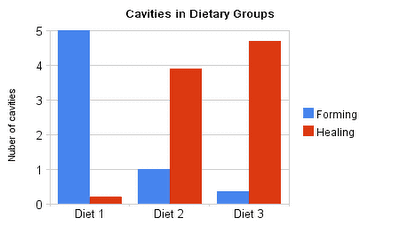
The group consuming phytic acid with no supplemental vitamin D continued to get cavities with little to no healing.
Participants that just supplemented Vitamin D showed some healing, but also got some new cavities.
The group consuming no phytic acid and supplementing Vitamin D showed very few new cavities and actually had many existing cavities heal!
This article at Whole Health Source explains more.
Can Teeth Regenerate?
Dentists know that the enamel of teeth can regenerate. Common belief is that once a cavity is through the dentin (the layer under the enamel), it is impossible for it to heal without dental intervention.
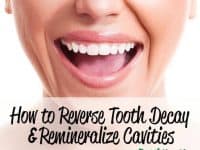
In my own life and in further reading, I’ve found that this isn’t the case either. As this article elaborates:
Fortunately, a decaying or broken tooth has the ability to heal itself. Pulp contains cells called odontoblasts, which form new dentin if the diet is good. Here’s what Dr. Edward Mellanby had to say about his wife’s research on the subject. This is taken from Nutrition and Disease:
Since the days of John Hunter it has been known that when the enamel and dentine are injured by attrition or caries, teeth do not remain passive but respond to the injury by producing a reaction of the odontoblasts in the dental pulp in an area generally corresponding to the damaged tissue and resulting in a laying down of what is known as secondary dentine.
In 1922 M. Mellanby proceeded to investigate this phenomenon under varying nutritional conditions and found that she could control the secondary dentine laid down in the teeth of animals as a reaction to attrition both in quality and quantity, independently of the original structure of the tooth. Thus, when a diet of high calcifying qualities, ie., one rich in vitamin D, calcium and phosphorus was given to the dogs during the period of attrition, the new secondary dentine laid down was abundant and well formed whether the original structure of the teeth was good or bad.
How to Remineralize Teeth
To recap, the things that Drs. Mellanby and Dr. Price found to be important for oral and bone health are:
- The presence of enough minerals in the diet.
- The presence of enough fat soluble vitamins (A, D, E and K) in the diet.
- How bio-available these nutrients are and how well the body is absorbing them. They found that this is largely influenced by the presence of Phytic Acid in the diet.
What does this mean practically in the diet? It is not possible or necessary to fully eliminate Phytic acid from the diet. What should be considered is taking care to minimize the foods that contain the highest amounts.
Some preparations like soaking and fermenting can reduce the phytic acid content and should be practiced if the foods are going to be consumed, but in many cases, it is better to avoid these foods completely.
Foods to Watch Out For
Nuts, for instance, have a high phytic acid content which can be greatly reduced by soaking the nuts in salt or lemon water overnight and then rinsing and dehydrating in the oven (the same can be done with beans). While this step is time consuming, it is feasible with things like nuts or beans, but much more intensive with wheat (which contains more phytic acid!)
Grains especially are better soaked, sprouted and fermented, if consumed at all, but this process does not completely eliminate the other harmful properties of grains. Avoiding the most common food sources of phytic acid can also help:
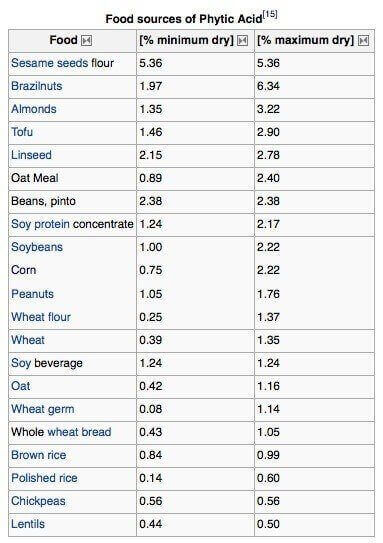
You might notice that meats, eggs, vegetables, and healthy fats are not on this list of high phytic acid foods. As I’ve mentioned before, these foods contain higher levels of vitamins and minerals are are more nutrient dense anyway.
If foods high in phytic acid are going to be eaten, check out this article from the Weston A. Price Foundation on how to sprout, ferment, and soak them to make them less harmful.
There is also a great book called Cure Tooth Decay: Heal and Prevent Cavities with Nutrition by Rami Nagel that explains in great detail the connection between phytic acid and tooth/bone health and practical steps to reverse it.
Remineralizing Teeth: My Experience
In early 2010, my regular dental check-up revealed that I had some soft spots and a lot of plaque on my teeth. I also had one “official” cavity. The cavity wasn’t bad, and while they suggested getting it filled soon, it wasn’t a huge rush. They did warn me that I had the beginning stages of gingivitis in several places and had a lot of plaque. (It took them about 30-40 minutes to scrape and clean my teeth, which I thought was normal). They took x-rays, so I have picture evidence of my teeth at this time.
I had every intention of getting the cavity filled quickly, but then life happened and I didn’t get around to scheduling an appointment for months. By the time I was ready to schedule an appointment, I had seen some interesting info in books about the ability of teeth to heal, so I decided to hold off.
Research Phase
I did more research, read the book Cure Tooth Decay and read accounts of other people reversing dental damage, so I decided to give it a try. I took advice from all the research I had done and figured out a specific diet and supplement regimen that I was going to use to try to heal my teeth.
After a couple of months, my teeth were whiter and much less sensitive to cold. This was big news to me as I used to have such sensitive teeth that drinking too cold of a drink could literally almost bring me to tears.
My Results
It was fall of 2011 before I finally got around to making it back to the dentist (I know, I know… every six months…) and I didn’t mention a thing about the cavities and soft spots that needed to be fixed… and neither did the dentist!
It also only took them about 5 minutes to clean and scrape my teeth. I thought she was still checking them and she was done! The hygienist told me that my teeth and gums looked great, and asked if I had started using fluoride or fluoride toothpaste (my chart made it very clear that I was anti-fluoride). I told her no but that I had been trying to make sure I was taking better care of my teeth lately (very true!).
When the dentist checked my teeth, he didn’t mention any problem areas either and remarked that my gums looked great! On a random note, I heard him telling another patient that cutting back on the sugar and starches was a good idea since “without starches, cavities can not form, since they feed on sugar and starches.” Newfound respect for my dentist!
So what did I do?
Diet to Help Heal Cavities and Improve Oral Health
- I drastically cut foods that contained phytic acid. I already wasn’t eating grains or beans, but I also cut or limited nuts. Podcast guest Dr. Steven Gundry points out that using a pressure cooker like an Instant Pot reduces phytic acid and lectin content and is a great option for people who still want to consume these foods.
- Limited foods containing even natural sugars or starches– I limited fruit and even starchy vegetables like sweet potatoes and focused on mineral rich vegetables, bone broths, meats, and healthy fats. Most dentists will back this advice up. Studies show it isn’t just sugar consumption but how often we consume it that is linked to higher risk of cavities.
- Ate a LOT of healthy fats. I added seafood, fish oil, olive oil, and healthy fats to my diet each day, and used only pastured, cultured butter. This helped increase the presence of fat-soluble vitamins.
- I made an effort to consume a lot of homemade bone broth for its added minerals. (If you’re short on time, I recommend buying your broth online.
To recap: No grains, beans or nuts and limited fruits and starches. Lots of vegetables, protein, healthy fats and bone broth.
Supplements to Help Heal Cavities and Improve Oral Health
To help the body remineralize cavities, it is sometimes necessary to increase mineral levels with supplements. While diet alone might be enough, many foods are depleted of nutrients from being grown in nutrient-depleted soil, so supplements help fill the gaps. These are the supplements I typically recommend for improved oral health and dental healing:
- Fermented Cod Liver Oil and Butter Blend- This is one of the main supplements recommended by Dr. Price from his research and I took it during this time to help my teeth. FCLO has become controversial recently, but it is the supplement I used to reverse my tooth problems so I’m listing it here but do not feel comfortable linking to it or sharing the brand.
- Vitamin D– This was the other main supplement that Dr. Price and the Drs. Mellanby found was extremely supportive of dental healing. In the study they did, cavities healed even when diet wasn’t changed if Vitamin D was optimized. Patients healed most when diet was optimized and Vitamin D was added. I personally get my blood levels of Vitamin D tested often and am careful not to take too much.
- Other supplements– I also took magnesium, gelatin and vitamin C daily. These aren’t as vital to tooth healing.
Toothpastes and Powders to Remineralize Teeth
- When I started, I brushed with homemade remineralizing toothpaste daily. I also swished with both calcium and magnesium powders (75% calcium, 25% magnesium) dissolved in water daily to help provide minerals and to keep the mouth alkaline.
- I no longer make homemade toothpaste since launching my own Wellnesse toothpaste (no mixing required!). It contains hydroxyapatite, a mineral that naturally strengthens and whitens teeth. Ora Wellness Brushing Blend is another great choice (and what I used before I created my own brand).
- I brush with activated charcoal every couple of days to help pull toxins from the mouth (Exciting update: My Wellnesse Charcoal Toothpaste is now available!)
- I also practice oil pulling to help support tooth and gum health.
Other Results
I’ve gotten a lot of emails from readers with cavity-free teeth as well. Here is one of my favorites:
Hey Katie-
I just want to say thank you and share a healing success story thanks to your encouragement!
Last year (at age 30) the dentist told me I had my first cavity. It was not going to heal, he said it was too far advanced and not possible. I told him I didn’t want to deal with it because I was diagnosed with stage 4 carcinoid cancer and had recently had surgery to cut out a tumor. The thought of cutting something else out of my body when I was working so hard to heal my body didn’t make sense to me. So I found your site, read your tips, made homemade remineralizing toothpaste, ate a lot of bone broth and good butter, cut down on phytic acid, etc.
I went back to the dentist 6 months later and he was shocked that the cavity was gone. He wanted me to tell him everything I had done. I felt so good!
-Catherine D. from Virginia
This article was medically reviewed by Dr. Lauren Jefferis, board certified in Internal Medicine and Pediatrics. As always, this is not personal medical advice and we recommend that you talk with your doctor or work with a doctor at SteadyMD.
This article was medically reviewed by Dr. Steven Lin, who is a Board accredited dentist trained at the University of Sydney. With a background in biomedical science, he is a passionate whole-health advocate, focusing on the link between nutrition and dental health. Listen to my podcast or read the transcript of my interview with him here.
As always, this is not personal medical advice and we recommend that you talk with your doctor or dentist.
What do you think? Would you try remineralizing your own teeth? Do you already do these things?
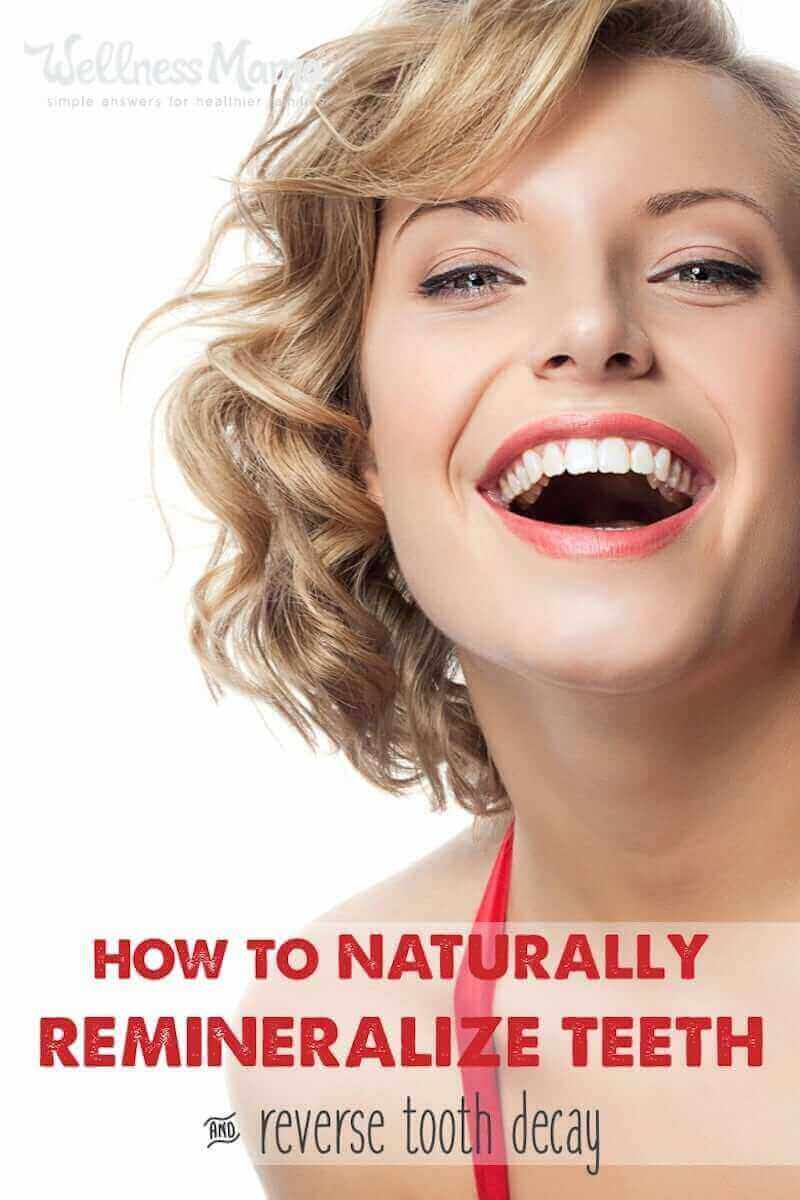

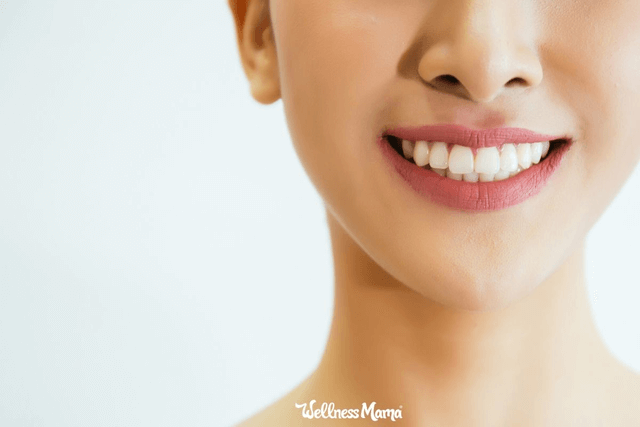
Leave a Reply